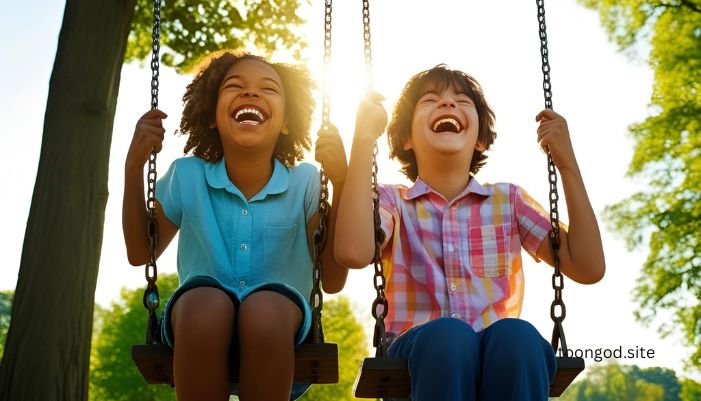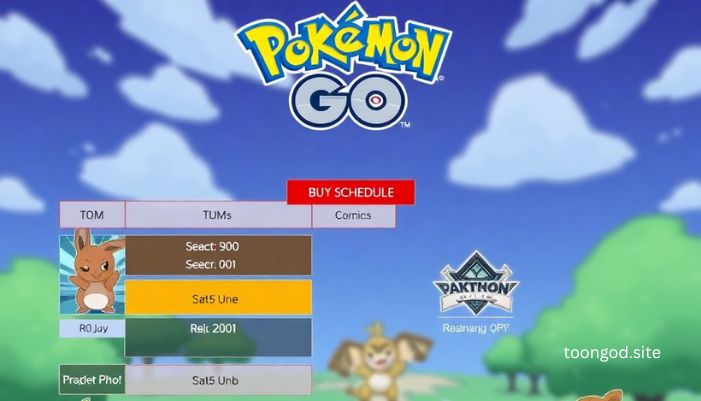Childhood friends are incredibly special. They are the people who first help you understand what friendship is. These friendships are built on simple moments, like playing games or sharing secrets. What makes these relationships stand out is how deep they can go. They are some of the first connections we make outside our family, and they help shape who we are. No matter where life takes us, childhood friends often stay close to our hearts. In this article, we’ll explore why these friendships are so valuable and how they continue to influence our lives long after childhood ends.
The Power of Childhood Friendships: What Makes Them Unique?
Childhood friendships are some of the purest relationships we can have. These friendships are built on shared experiences, laughter, and trust. But what exactly makes them so special?

Bonding Through Shared Experiences
The moments you share with childhood friends are unique. Whether it’s playing hide-and-seek, going on bike rides, or spending hours just talking, these are the memories that tie you together. Unlike other friendships that may form later in life, childhood friends are there when you first experience things. These shared memories make the bond stronger and more lasting. Even as life moves on, remembering those simpler days with your childhood friends can bring back feelings of joy and comfort.
Innocence and Loyalty
When you’re a child, you don’t have to worry about judgment. You can be yourself without fear of rejection. This innocence makes childhood friendships some of the most loyal relationships. You don’t have to try hard to impress each other – your friends like you for who you are, no strings attached. As you grow older, maintaining this level of trust and loyalty can be hard, but childhood friendships often retain this quality throughout life. They are one of the few relationships where loyalty and trust are given freely and without expectation.
The Foundation for Future Relationships
The lessons we learn from childhood friendships don’t just stay in the past. They help us form future relationships. From learning to share to solving conflicts, childhood friendships teach us important skills. They show us how to communicate, how to be kind, and how to handle disagreements. These early lessons make it easier to build healthy, lasting relationships as adults.

How Childhood Friends Shape Your Identity
Our childhood friends are often the first people who help shape who we become. They influence the way we see the world, how we interact with others, and even how we view ourselves.
Identity Formation Through Friendship
During childhood, your friends help shape how you see the world. They introduce you to new things, challenge your ideas, and encourage you to try new activities. The feedback from your childhood friends often impacts your self-esteem. Whether they’re supporting your interests or pushing you to try something new, they play a big part in your growth. As we get older, we might forget how important these early friendships were in forming who we are. But those first connections are the ones that lay the groundwork for all the other relationships we build later in life.
Emotional Support and Growth
Childhood friends are like emotional anchors. They are the ones who are there when you’re sad, scared, or happy. They watch you grow and change, and they offer support when you need it most. Because childhood friends understand your background and history, they offer a sense of stability. They are there for you even when you feel lost or alone. Their presence provides comfort, and their support helps you grow emotionally. The bonds formed in childhood often teach us how to support others emotionally, and those lessons carry forward into adult life.
Encouraging Personal Development
Our childhood friends often encourage us to grow, whether it’s trying a new sport, making a difficult decision, or just exploring different interests. They support our dreams, even when they’re not fully understood. The freedom to be ourselves, without fear of judgment, is one of the greatest gifts childhood friends give us. They help us see potential in ourselves that we may not have noticed before, and they push us to become better versions of ourselves.
Childhood Friendships and Their Impact on Mental Health
Childhood friendships can have a major impact on our mental health, offering emotional support and a safe space to express ourselves. In times of stress, these friendships can provide much-needed comfort and relief.
The Importance of a Trusted Confidant
A childhood friend is often someone who knows us better than anyone else. They’ve seen us at our best and worst and still accepted us. This makes them the ideal person to turn to when life gets tough. Whether you’re dealing with personal struggles or just need someone to listen, your childhood friend is likely to be there for you. The deep connection you share with them allows for a level of comfort that’s hard to find with others. Talking to a trusted friend can relieve anxiety and stress, making it easier to cope with challenges.
Helping You Cope with Life’s Challenges
Life is filled with ups and downs, and childhood friends often play a role in helping us deal with tough times. Whether it’s a problem at school, family issues, or personal setbacks, these friends offer a sense of security and reassurance. They remind us that we’re not alone, even in our darkest moments. When you face a challenge, your childhood friend is someone who will support you, listen to you, and offer perspective that helps you overcome obstacles.
Shared Laughter: A Natural Stress Reliever
Laughter is one of the best stress relievers. Childhood friends often have a unique way of making us laugh, even when life feels hard. The inside jokes and shared memories that only you two understand can lighten the mood and reduce anxiety. Simply being in each other’s company can make you feel better and bring a sense of peace. The joy that comes from childhood friendships helps lift your spirits, providing a natural way to reduce stress and improve your mental health.
Maintaining Childhood Friendships in Adulthood
As we grow older, it becomes harder to maintain the friendships we formed as children. Life gets busier, and other responsibilities take priority. However, with effort and intention, it’s possible to keep these friendships alive.
The Challenge of Growing Apart
When we move to a new city or start new jobs, childhood friends may seem farther away. Life changes often cause us to drift apart, but it’s important to make the effort to stay in touch. Don’t let physical distance or different life paths get in the way of staying close. Even though it’s not always easy, it’s worth the effort to keep the connection alive.
Tips for Staying Connected
- Stay in touch: Regular phone calls, text messages, or social media interactions are great ways to keep the bond strong.
- Plan visits or reunions: If possible, try to visit each other or plan a trip together. Even a short visit can make a big difference.
- Understand life changes: People change as they grow older, and sometimes, childhood friends may not be in the same place they once were. Be patient and understanding as you navigate these changes together.
The Joy of Rekindling Old Friendships
Sometimes, even if you haven’t spoken to a childhood friend in years, reconnecting can feel like no time has passed. The familiarity and trust you’ve built over the years are often still there, and you can pick up right where you left off. Rekindling old friendships can bring back memories of simpler times and create new experiences to cherish for years to come.
Conclusion
Childhood friends are not just people you meet when you’re young. They are essential to your emotional well-being and help shape the person you become. These friendships provide a sense of belonging, support, and joy that carries through life. While it may be difficult to keep these relationships strong as you get older, the effort is always worth it. Don’t forget the value of childhood friendships – they truly are timeless.
Reach out to your childhood friends and make new memories together. You’ll be glad you did.
FAQs about Childhood Friends
Why are childhood friends so important?
Childhood friends are important because they help shape who we are. They offer emotional support, share memories with us, and are often there for us during key moments in life.
How can I reconnect with childhood friends?
To reconnect with childhood friends, you can reach out through social media, send a text, or give them a call. Starting with a shared memory can help break the ice.
Do childhood friendships last?
Some childhood friendships last a lifetime, while others may fade over time. However, with effort and understanding, many childhood friendships can remain strong into adulthood.
What should I do if I’ve lost touch with a childhood friend?
If you’ve lost touch with a childhood friend, don’t hesitate to reach out. Share a memory or ask how they’ve been. Reconnecting might be easier than you think.



